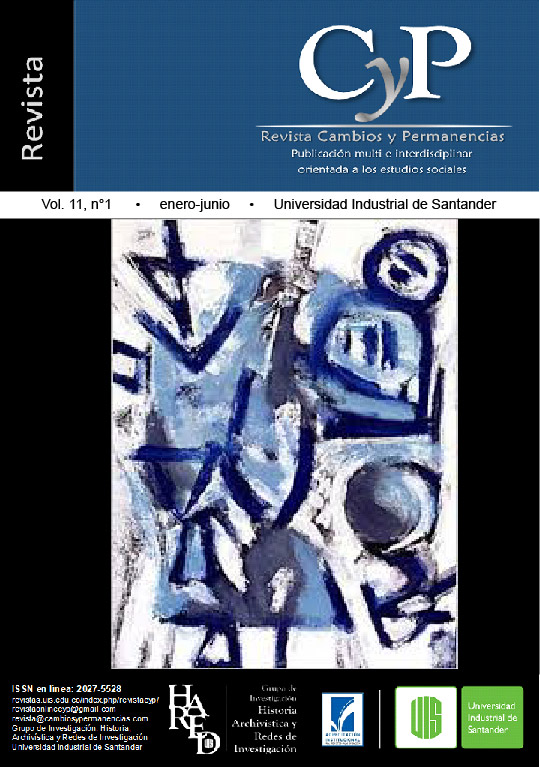Looking for a place where I can live happily. Pedagogical Proposal on Human Rights for children and adolescents of Ciudad Bolívar
Published 2020-06-30
Keywords
- Boys-girls,
- memory,
- participation,
- rights,
- mourning
- displacement,
- victims ...More
How to Cite
Abstract
The research work he has in his hands aims to account for the pedagogical exercise developed during six months in different territories of Ciudad Bolivar, in the neighborhood Potosí, with the organization Asodenfa, in Quiba with OPV Rosa Buenaventura, in Villas del Progreso with the Renacer de la Familia Foundation, in Espino I with Asospram and in the neighborhood Perdomo Alto with Cuyeca A Obsun.
Each of these organizations made available their capacity to be able to remain with the working groups made up of children and adolescents between 2 and 15 years of age. In this way since community organizations, the pedagogical model "Looking for a place to be able to live happily" in wich that promotes the right to participation and child protagonism.
This proposal makes it possible to collect the voices of the children and adolescents who inhabit the territory of Ciudad Bolívar, children and adolescents who are born in the locality, since their families are historical residents of the territory, understanding historical like the families that migrated more than 40 years ago to Ciudad Bolívar, and children and adolescents who came from other regions of the country, often because of the armed conflict, seeking refuge.
Downloads
References
Corpas, J., y Suarez, J. (2013). Apelando a la documentacion de procesos - Documentación Kukulkan. Bogotá, Colombia.
Corporación Comunitaria Cuyeca A Obsun. (2017). Amapola. Bogotá, Colombia: Cuyeca a Obsun.
Cussianovich, A. (2007). Aprender la condición humana; ensayo sobre la pedagogía de la ternura. Lima, Perú: Ifejant.
Guiso, A. (2012). Cinco claves ético-pedagógicas de Freire. En M. A. Delgado., M. I. Romero Sarduy., y J. R. Vidal Valdez, ¿Que es la educación Popular? (pp. 173-181). Habana, Cuba: Caminos.
Jelin, E. (2002). Los trabajos de la Memoria. Madrid, España: Siglo XXI.
Palacios, J., y Castellanos, E. (2009). La primera infancia (0-6 años) y su futuro. Madrid, España: OIM.
Romero, T., y Castañeda, E. (2009). El conflicto Armado Colombiano y la Primera Infancia. En S. t. Children., A. C. Mejia., y G. Gonzalez Uribe (Edits.), Colombia: huellas del conflicto en la primera infancia (pág. 34). Colombia.
Save the Children (2009). Garantizar un desarrollo infantil equilibrado. En Á. Marchesi, Colombia: huella del conflicto en la primera infancia (pp. 19-27). Colombia.
Secretaria de Educación (2010). Lineamientos pedagógico y curricular para la Educación Inicial en el Distrito. Bogotá, Colombia: Secretaria de Educación/Secretaría de Integración Social.
Suárez, J. S., Benavides, O. y Guzmán, M. (2016). Pedagogía de la memoria - un camino para construir paz y comunidad. Bogotá, Colombia: Cuyeca A Obsun.
Suárez, J., Salamanca, M., y Benavides, O. (2017). Buscando un lugar donde poder vivir feliz. Bogotá, Colombia: Cuyeca A Obsun.
Torres Carrillo, A. (2007). Paulo Freire y la Educación Popular. La Piragua, 26.

